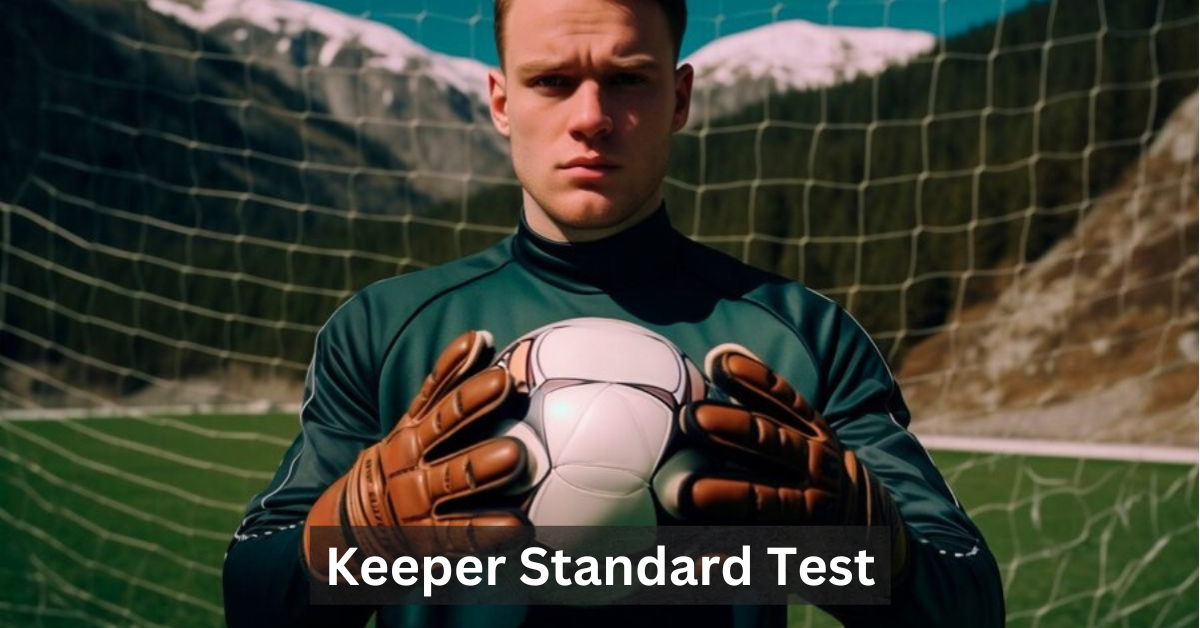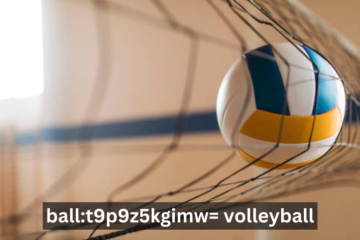The Keeper Standard Test is a comprehensive evaluation designed to assess a goalkeeper’s physical, technical, and mental skills to determine their readiness for competitive soccer. This test has become a critical benchmark for goalkeepers, helping them assess their strengths and identify areas for improvement. The test evaluates essential components of goalkeeping, including physical fitness, technical abilities, tactical understanding, and mental toughness. Aspiring goalkeepers can use the Keeper Standard Test as a tool for self-assessment, while professionals benefit from it to ensure they meet the high demands of competitive soccer. The test offers valuable insights that help goalkeepers sharpen their skills, improve performance, and track their progress over time.
The Keeper Standard Test is a multi-dimensional evaluation aimed at assessing a goalkeeper’s overall performance on the field. Unlike traditional physical assessments, this test also incorporates the mental and tactical aspects of goalkeeping. It evaluates a goalkeeper’s physical fitness, agility, shot-stopping techniques, distribution, decision-making, and even their ability to perform under pressure. As goalkeepers are often exposed to high-stress situations, mental and psychological evaluation is equally crucial. This holistic approach makes the Keeper Standard Test an invaluable tool for goalkeeper development at all levels. The test not only helps identify areas for improvement but also provides feedback on how well a goalkeeper can handle real-game pressure, contributing to long-term growth and success.
What is the Keeper Standard Test?
The Keeper Standard Test is designed to assess a goalkeeper’s performance in four key areas: physical fitness, technical skills, tactical understanding, and mental resilience. Each of these components plays a vital role in a goalkeeper’s overall ability to perform on the field. The test evaluates endurance, agility, and reflexes, all of which are fundamental for a goalkeeper to cover the goal and react quickly to shots. In addition to physical assessments, the Keeper Standard Test also includes technical drills that evaluate ball handling, diving techniques, and distribution skills. Moreover, goalkeepers are tested on their ability to read the game, make strategic decisions under pressure, and effectively communicate with teammates. Finally, mental resilience is a major focus of the test, ensuring that goalkeepers can maintain focus, composure, and confidence, even in challenging situations.
The Core Components and Structure of the Keeper Standard Test
The Keeper Standard Test is structured to evaluate a goalkeeper’s performance across four primary components: physical fitness, technical skills, tactical understanding, and mental resilience. Each component includes a series of exercises designed to simulate real-game conditions. The physical fitness section includes endurance tests, reflex training, and agility drills, ensuring that the goalkeeper has the stamina and speed to maintain peak performance throughout a match. The technical skills assessment includes ball-handling drills, shot-stopping exercises, and distribution tests that evaluate a goalkeeper’s precision and control. The tactical understanding section assesses a goalkeeper’s decision-making ability, positioning, and ability to organize their defense. Lastly, the mental resilience component gauges a goalkeeper’s ability to concentrate under pressure, manage stress, and recover from setbacks.
How the Keeper Standard Test is Conducted
The Keeper Standard Test is usually conducted in a professional training environment, with goalkeepers being assessed under simulated game conditions. This ensures that the results reflect their ability to perform under actual match scenarios. The test is typically administered by experienced coaches who are trained to evaluate goalkeepers on various aspects of their performance. A clear scoring system is used to assess performance across all components, with feedback provided after the test to highlight strengths and areas for improvement. The test helps goalkeepers track their progress over time and set clear goals for their ongoing development.
The Benefits of the Keeper Standard Test
The Keeper Standard Test offers a wide range of benefits for goalkeepers at every level. For professionals, it serves as a tool for evaluating performance and identifying areas for improvement. For aspiring goalkeepers, it offers valuable insights into their development needs and provides a roadmap for skill enhancement. One of the key benefits of the test is its ability to provide objective feedback, enabling goalkeepers to benchmark their progress and track improvement over time. It also helps coaches develop tailored training programs that focus on specific areas of a goalkeeper’s game. In addition, the test promotes self-awareness, allowing goalkeepers to take ownership of their development and work towards achieving their goals.
Real-World Applications and Success Stories
Many top-level goalkeepers have benefited from undergoing assessments similar to the Keeper Standard Test. Professional goalkeepers like Manuel Neuer and David de Gea, known for their exceptional shot-stopping and distribution abilities, would have likely undergone similar tests to refine their skills and ensure their readiness for top-tier competition. By evaluating performance across various components, the Keeper Standard Test helps identify strengths and areas for growth, enabling goalkeepers to stay at the top of their game. Moreover, goalkeeper development programs around the world incorporate elements of the Keeper Standard Test to ensure that goalkeepers continue to improve and meet the evolving demands of modern football.
Challenges and Limitations of the Keeper Standard Test
While the Keeper Standard Test is a comprehensive tool, it is not without its limitations. One potential issue is the possibility of bias in the evaluation process, as the test is often conducted by individual coaches or evaluators, each with their own set of preferences. Additionally, the test may not fully capture all aspects of a goalkeeper’s abilities, particularly in real-game scenarios where factors like crowd noise and emotional pressure come into play. It is important for the Keeper Standard Test to be used in conjunction with ongoing real-game assessments to provide a complete picture of a goalkeeper’s performance.
The Future of the Keeper Standard Test
With advancements in technology, the Keeper Standard Test is likely to evolve in the coming years. Innovations like motion capture systems, virtual reality training, and AI-driven analytics could provide more precise evaluations of a goalkeeper’s movements, reaction times, and decision-making abilities. These technologies will help make the test even more accurate and personalized, allowing for a deeper understanding of a goalkeeper’s biomechanics and mental processes. Additionally, new psychological and cognitive assessments, including the use of neurofeedback and heart rate variability training, may help improve a goalkeeper’s mental resilience and ability to perform under pressure.
Conclusion
The Keeper Standard Test is an invaluable tool for goalkeepers who are committed to improving their performance and advancing their careers. By assessing physical fitness, technical skills, tactical understanding, and mental resilience, the test provides a comprehensive evaluation of a goalkeeper’s abilities. Aspiring goalkeepers should incorporate the Keeper Standard Test into their regular training routine, as it offers valuable insights and actionable feedback that can lead to improved performance on the field. By mastering the Keeper Standard Test, goalkeepers can ensure they are prepared for the challenges of modern soccer and continue to push their limits to achieve success.
Frequently Asked Questions
How long does the Keeper Standard Test take?
The Keeper Standard Test typically takes around 60-90 minutes, depending on the number of drills and assessments included in the evaluation.
Can amateur goalkeepers take the Keeper Standard Test?
Yes, amateur goalkeepers can take the Keeper Standard Test to measure their skills and identify areas for improvement, regardless of their experience level.
What skills are tested in the Keeper Standard Test?
The Keeper Standard Test evaluates shot-stopping, distribution, decision-making, agility, mental resilience, and tactical understanding of the goalkeeper.
How can I prepare for the Keeper Standard Test?
To prepare for the Keeper Standard Test, goalkeepers should focus on physical conditioning, technical drills, decision-making scenarios, and mental toughness exercises.
Stay in touch to get more updates & alerts on Picnob! Thank you



